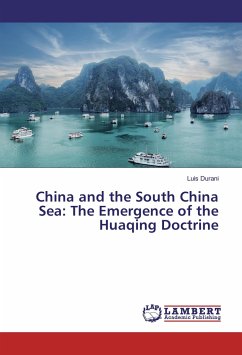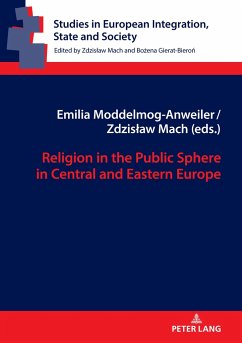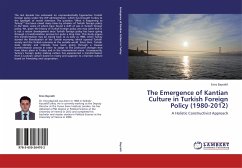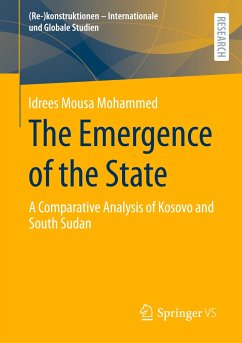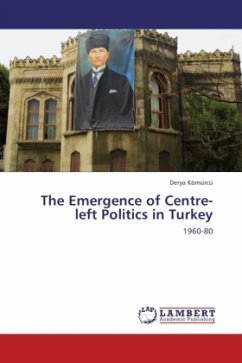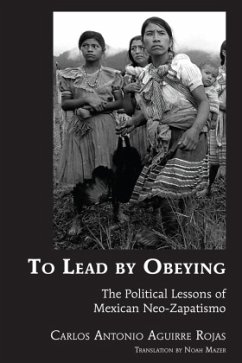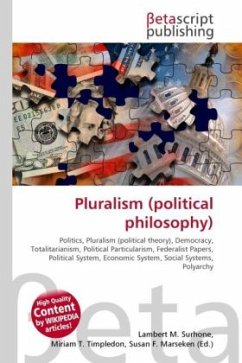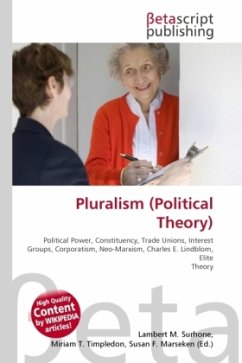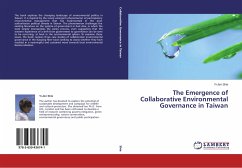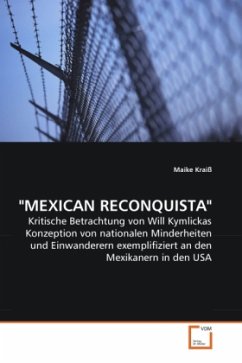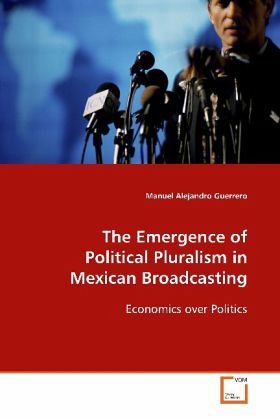
The Emergence of Political Pluralism in Mexican Broadcasting
Economics over Politics
Versandkostenfrei!
Versandfertig in 6-10 Tagen
52,99 €
inkl. MwSt.

PAYBACK Punkte
26 °P sammeln!
Most of the literature on media and political transitions assumes or tries to prove thatthe media is either a promoter of democracy or a product of a democratic transition. The case of the broadcast media in Mexico is interesting because its coverage of political pluralism did not coincide with the timing of the political transition. Impartial and comprehensive coverage came later, when opposition parties were in control of state governments and the composition of the federal congress was already quite balanced. In Mexico, the political transition was a necessary, but not a sufficient conditio...
Most of the literature on media and political
transitions assumes or tries to prove that
the media is either a promoter of democracy or a
product of a democratic transition. The case of
the broadcast media in Mexico is interesting
because its coverage of political pluralism did
not coincide with the timing of the political
transition. Impartial and comprehensive coverage
came later, when opposition parties were in
control of state governments and the composition of
the federal congress was already quite balanced. In
Mexico, the political transition was a necessary,
but not a sufficient condition for explaining the
media s recent openness. But then, if the
explanation is not found in politics, where should
we look for the conditions that led the broadcast
media towards more openness and autonomy? The
emergence of political pluralism in broadcast
media is studied here through an evaluation of the
regulation, of the media otganizations, and of ways
radio and television news broadcasts presented the
news and other political information especially
during different electoral campaigns from the 1980s
to the 2000 presidential election.
transitions assumes or tries to prove that
the media is either a promoter of democracy or a
product of a democratic transition. The case of
the broadcast media in Mexico is interesting
because its coverage of political pluralism did
not coincide with the timing of the political
transition. Impartial and comprehensive coverage
came later, when opposition parties were in
control of state governments and the composition of
the federal congress was already quite balanced. In
Mexico, the political transition was a necessary,
but not a sufficient condition for explaining the
media s recent openness. But then, if the
explanation is not found in politics, where should
we look for the conditions that led the broadcast
media towards more openness and autonomy? The
emergence of political pluralism in broadcast
media is studied here through an evaluation of the
regulation, of the media otganizations, and of ways
radio and television news broadcasts presented the
news and other political information especially
during different electoral campaigns from the 1980s
to the 2000 presidential election.



